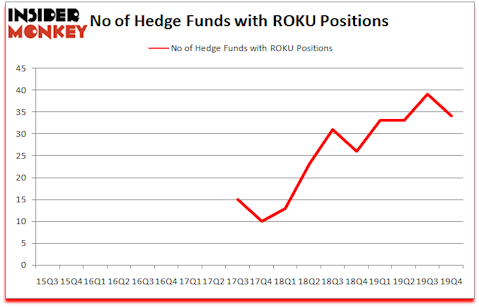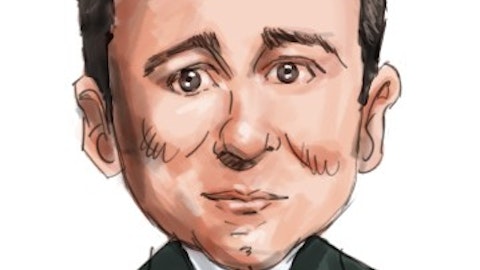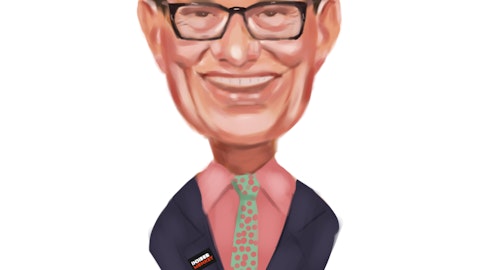We hate to say this but, we told you so. On February 27th we published an article with the title Recession is Imminent: We Need A Travel Ban NOW and predicted a US recession when the S&P 500 Index was trading at the 3150 level. We also told you to short the market and buy long-term Treasury bonds. Our article also called for a total international travel ban. While we were warning you, President Trump minimized the threat and failed to act promptly. As a result of his inaction, we will now experience a deeper recession (read our latest 10 coronavirus predictions).
In these volatile markets we scrutinize hedge fund filings to get a reading on which direction each stock might be going. The financial regulations require hedge funds and wealthy investors that exceeded the $100 million equity holdings threshold to file a report that shows their positions at the end of every quarter. Even though it isn’t the intention, these filings to a certain extent level the playing field for ordinary investors. The latest round of 13F filings disclosed the funds’ positions on December 31st. We at Insider Monkey have made an extensive database of more than 835 of those established hedge funds and famous value investors’ filings. In this article, we analyze how these elite funds and prominent investors traded Roku, Inc. (NASDAQ:ROKU) based on those filings.
Roku, Inc. (NASDAQ:ROKU) investors should pay attention to a decrease in enthusiasm from smart money of late. ROKU was in 34 hedge funds’ portfolios at the end of the fourth quarter of 2019. There were 39 hedge funds in our database with ROKU positions at the end of the previous quarter. Our calculations also showed that ROKU isn’t among the 30 most popular stocks among hedge funds (click for Q4 rankings and see the video below for Q3 rankings).
So, why do we pay attention to hedge fund sentiment before making any investment decisions? Our research has shown that hedge funds’ small-cap stock picks managed to beat the market by double digits annually between 1999 and 2016, but the margin of outperformance has been declining in recent years. Nevertheless, we were still able to identify in advance a select group of hedge fund holdings that outperformed the S&P 500 ETFs by more than 41 percentage points since March 2017 (see the details here). We were also able to identify in advance a select group of hedge fund holdings that underperformed the market by 10 percentage points annually between 2006 and 2017. Interestingly the margin of underperformance of these stocks has been increasing in recent years. Investors who are long the market and short these stocks would have returned more than 27% annually between 2015 and 2017. We have been tracking and sharing the list of these stocks since February 2017 in our quarterly newsletter. Even if you aren’t comfortable with shorting stocks, you should at least avoid initiating long positions in stocks that are in our short portfolio.

Sander Gerber of Hudson Bay Capital
We leave no stone unturned when looking for the next great investment idea. For example we recently identified a stock that trades 25% below the net cash on its balance sheet. We read hedge fund investor letters and listen to stock pitches at hedge fund conferences, and go through short-term trade recommendations like this one. We even check out the recommendations of services with hard to believe track records. Our best call in 2020 was shorting the market when S&P 500 was trading at 3150 after realizing the coronavirus pandemic’s significance before most investors. Keeping this in mind we’re going to analyze the fresh hedge fund action encompassing Roku, Inc. (NASDAQ:ROKU).
What does smart money think about Roku, Inc. (NASDAQ:ROKU)?
At the end of the fourth quarter, a total of 34 of the hedge funds tracked by Insider Monkey held long positions in this stock, a change of -13% from the previous quarter. On the other hand, there were a total of 26 hedge funds with a bullish position in ROKU a year ago. So, let’s check out which hedge funds were among the top holders of the stock and which hedge funds were making big moves.

More specifically, Citadel Investment Group was the largest shareholder of Roku, Inc. (NASDAQ:ROKU), with a stake worth $295.1 million reported as of the end of September. Trailing Citadel Investment Group was Citadel Investment Group, which amassed a stake valued at $58.8 million. PEAK6 Capital Management, D E Shaw, and Ogborne Capital were also very fond of the stock, becoming one of the largest hedge fund holders of the company. In terms of the portfolio weights assigned to each position Ogborne Capital allocated the biggest weight to Roku, Inc. (NASDAQ:ROKU), around 12.6% of its 13F portfolio. Empirical Capital Partners is also relatively very bullish on the stock, designating 9.26 percent of its 13F equity portfolio to ROKU.
Because Roku, Inc. (NASDAQ:ROKU) has faced declining sentiment from the aggregate hedge fund industry, it’s safe to say that there were a few money managers that slashed their full holdings last quarter. It’s worth mentioning that Alex Sacerdote’s Whale Rock Capital Management said goodbye to the largest stake of the “upper crust” of funds monitored by Insider Monkey, comprising about $123.1 million in stock, and John Overdeck and David Siegel’s Two Sigma Advisors was right behind this move, as the fund dropped about $18 million worth. These bearish behaviors are important to note, as total hedge fund interest dropped by 5 funds last quarter.
Let’s also examine hedge fund activity in other stocks – not necessarily in the same industry as Roku, Inc. (NASDAQ:ROKU) but similarly valued. These stocks are Avangrid, Inc. (NYSE:AGR), Markel Corporation (NYSE:MKL), The Cooper Companies, Inc. (NYSE:COO), and Expedia Group, Inc. (NASDAQ:EXPE). This group of stocks’ market caps are closest to ROKU’s market cap.
| Ticker | No of HFs with positions | Total Value of HF Positions (x1000) | Change in HF Position |
|---|---|---|---|
| AGR | 19 | 370291 | 3 |
| MKL | 37 | 1409964 | 6 |
| COO | 28 | 764569 | -3 |
| EXPE | 59 | 3035242 | 22 |
| Average | 35.75 | 1395017 | 7 |
View table here if you experience formatting issues.
As you can see these stocks had an average of 35.75 hedge funds with bullish positions and the average amount invested in these stocks was $1395 million. That figure was $232 million in ROKU’s case. Expedia Group, Inc.(NASDAQ:EXPE) is the most popular stock in this table. On the other hand Avangrid, Inc. (NYSE:AGR) is the least popular one with only 19 bullish hedge fund positions. Roku, Inc. (NASDAQ:ROKU) is not the least popular stock in this group but hedge fund interest is still below average. This is a slightly negative signal and we’d rather spend our time researching stocks that hedge funds are piling on. Our calculations showed that top 20 most popular stocks among hedge funds returned 41.3% in 2019 and outperformed the S&P 500 ETF (SPY) by 10.1 percentage points. These stocks lost 22.3% in 2020 through March 16th but beat the market by 3.2 percentage points. Unfortunately ROKU wasn’t nearly as popular as these 20 stocks (hedge fund sentiment was quite bearish); ROKU investors were disappointed as the stock returned -52.3% during the same time period and underperformed the market. If you are interested in investing in large cap stocks with huge upside potential, you should check out the top 20 most popular stocks among hedge funds as most of these stocks already outperformed the market in Q1.

Video: Click the image to watch our video about the top 5 most popular hedge fund stocks.
Disclosure: None. This article was originally published at Insider Monkey.




